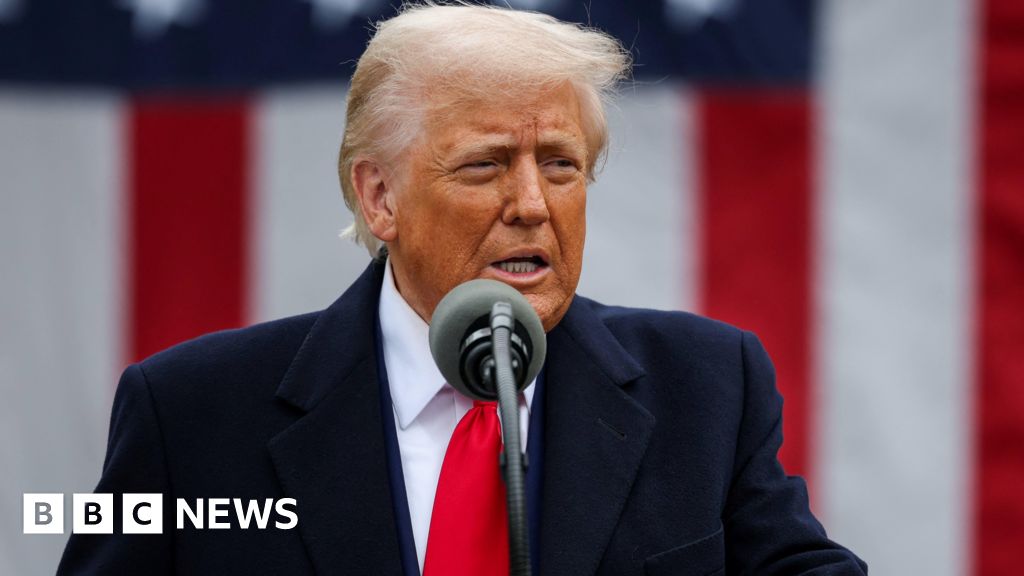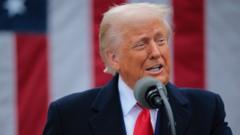If there ever really was a unipolar world dominated by the U.S. in the years after the end of the Cold War, it certainly is not in existence now. A multipolar world is emerging instead. This emerging multipolar world is one in which the U.S. is seen as less powerful than it was during the unipolar era, and in which anti-American powers–including China, Russia, and some of their partners–are seen as gaining ground against the U.S. and its allies. Even some of the U.S.’s longstanding partners such as Turkiye, Saudi Arabia, and the United Arab Emirates (UAE) are undertaking assertive actions and cooperating with one or more of Washington’s adversaries. While most of America’s Western allies have joined the U.S. in aiding Ukraine and sanctioning Moscow after Russia invaded Ukraine in February 2022, most “Global South” governments have not done so. Further, incoming President Trump and many Republicans in Congress openly question the value to the U.S. of the alliance relationships built up by previous presidents and even the terms under which the U.S. should continue to uphold them.
Yet while the U.S. may now be less influential than it appeared during the unipolar moment, the U.S. very much remains a great power in the emerging multipolar world. Furthermore, the U.S. may have some opportunities in navigating this multipolar world that it did not have (or had less of) during its unipolar moment or during the preceding bipolar Cold War era. Why is this? In a multipolar world, great powers have the opportunity to engage in buck-passing. As the renowned international relations theorist John J. Mearsheimer explained in his The Tragedy of Great Power Politics:
A buck-passer attempts to get another state to bear the burden of deterring or possibly fighting an aggressor, while it remains on the sidelines. The buck-passer fully recognizes the need to prevent the aggressor from increasing its share of world power but looks for some other state that is threatened by the aggressor to perform that onerous task (Mearsheimer 2014, 157–8).
In a bipolar world, though, this is not possible because a gain for one of the bipolar great powers is necessarily a loss for the other. As Mearsheimer (2014, 270) put it, “no buck-passing takes place among the great powers in bipolarity because there is no third party to catch the buck”.
In a unipolar world order, all challenges to the existing order are also challenges to the unipolar power, and so any challenge poses the threat, if not to the unipolar power itself, then to one or more of its less powerful allies and to the unipolar order as a whole. As Nuno Monteiro wrote in International Security, a unipole will oppose any attempt by minor powers to revise the status quo in a way that is detrimental to its interests (Monteiro 2011/12, 31). In both bipolar and unipolar worlds, then, the dominant polar power(s) feel the need to respond to all challenges, but doing so is highly costly and can be unsuccessful–as the U.S. experienced both during the Cold War and War on Terror eras.
Now that a multipolar world order has arrived, though, the U.S. may have opportunities to engage in buck-passing that it did not have in the bipolar or unipolar eras. This is not to say that this is a better world for the U.S. (much less for the world as a whole) or that the U.S. will necessarily be successful at buck-passing. In fact, buck-passing can fail spectacularly if the assumptions on which it is based are faulty. But just like it is for other countries, buck-passing is now an opportunity for the U.S. in the emerging multipolar world. And at a time when the U.S. has become less willing to undertake military intervention or even support allies as much as it has done in the past, a multipolar world in which the U.S. can buck pass may even be preferable for the U.S. than a bipolar or unipolar world in which it cannot.
How can this be? Instead of the U.S. itself undertaking the burdensome task of attempting to contain all its many adversaries simultaneously, the U.S. in a multipolar world can exploit opportunities posed by conflicting ambitions of other states (including adversaries and friends that are not really friends). At maximum, their hostility toward each other could become so great that one or even both will be willing to cooperate with the U.S. due to greater fear of the other, as occurred at the height of Sino-Soviet rivalry in the early 1970s. Even if this state of affairs cannot be replicated, the U.S. might at least avoid actions that push adversaries together despite their differences which Washington’s attempting to counter all adversaries simultaneously can result in. And at minimum, it is better for the U.S. if its adversaries and “unfriendly friends” focus on countering each other more than, or at least as much as, countering the U.S.
Further, pursuing its interests through buck-passing is not something that will be entirely new for American foreign policy. Indeed, the U.S. has—whether wittingly or not—already been buck-passing in several instances. The 2021 collapse of the Kabul government even before the completion of the U.S. military withdrawal from Afghanistan as well as the return to power of the Taliban can be (indeed, generally is) viewed as an embarrassing failure for the U.S. A more Machiavellian interpretation of what happened, though, was that while the U.S. presence in Afghanistan protected neighboring states from the Taliban, the American departure handed the problem of dealing both with the Taliban and the chaos of Afghanistan to Afghanistan’s neighbors: Iran, Pakistan, China, the Central Asian republics and the latter’s Russian patrons. Despite the downfall of the U.S.-backed Kabul government, the Taliban has been unable to rule all of Afghanistan due to the strength of its more extreme rival, ISIS-K. In other words, by withdrawing from Afghanistan, the U.S. essentially buck-passed the problem of dealing with the Taliban and ISIS-K onto others—including America’s adversary Iran and “unfriendly friend” Pakistan (which supported the Taliban when they were fighting U.S. forces in Afghanistan).
Another example is the ongoing conflict in Libya. On the one hand, it appears that the U.S. has simply been unable to affect the ongoing conflict between the UN-recognized and Turkish-backed Libyan government in the west on the one hand and the Russian-, UAE-, and Egyptian-backed warlord Khalifa Haftar in the east on the other. But again from a more Machiavellian viewpoint: Russian/UAE/Egyptian-backed Libyan forces in the east and Turkish-backed ones in the west keep each other in check and prevent either side—along with their external patrons—from dominating all Libya. And this is occurring without the U.S. playing a significant role in Libya after 2011.
Of course, it can (and should) be pointed out that the presence of Russia’s Wagner “private” military force (renamed “Africa Corps”) in eastern Libya facilitated an expanding Russian presence in several countries to the south of Libya, including the Central African Republic, Mali, Niger, and Burkina Faso. In francophone countries in particular, military coups not only ousted pro-Western democratic governments, but these new military regimes subsequently expelled French advisers (as well as American ones from Niger) and replaced them with Russian ones. This has understandably been viewed as a geopolitical setback for the West. The French and the Americans, though, were there to combat the jihadist challenge in these countries–something that they could not defeat. With their departure, Russian forces are now attempting to undertake the same task but with far fewer resources. France and the U.S. did not, of course, deliberately decide to buck pass the jihadist challenge onto the Russians; the Russians instead seized the task of dealing with it from them. But Russia so far has been no more successful in defeating the jihadists. Indeed, some accounts indicate that violent Russian tactics have made the problem worse. This opens the door to the possibility of coastal states in West Africa, appalled by both the rise of the jihadists and the counterproductive behavior of the Russians in the Sahel, turning more to the U.S. and its allies, or even of the Sahel governments who invited Russian forces in growing disillusioned and throwing them out—though Russian forces can be expected to resist this. In the meantime, though, the activity of the Russians on the one hand and the jihadists on the other serve to keep each other in check.
Similarly, despite Russian and Iranian military support for the Assad regime in Syria, Damascus was unable to assert control over the entire country because of Turkish military support for Assad’s opponents in northwestern Syria. Not wishing to fight one another, Turkey on the one hand and Russia and Iran on the other keep each other in check in Syria—at least, that is, until December 2024 when Turkish-backed Islamist forces overthrew the Assad regime which Russia, Iran, and Hezbollah had previously supported but which Russia could not help due to the exigencies of its war against Ukraine and Iran and Hezbollah could not either due to setbacks received from Israel. The U.S. remained on the sidelines during these events.
Some might argue that none of these outcomes can truly be described as successful examples of American buck-passing as they did not arise out of (as far as is known) deliberate Machiavellian maneuvering on the part of Washington but happened to occur despite American retreat or neglect. However, these instances of American departure or neglect leading to its adversaries (or an adversary and an unfriendly friend) acting to thwart each other are really not so unusual, but instead part of the unsurprising pattern of ambitious actors turning against each other after the departure of a common adversary from a contest. Some might describe this as the predictable working of age-old balance of power dynamics. Indeed, one can only wonder whether the outcome for the U.S. would have been better on some previous occasions if instead of undertaking costly intervention, the U.S. had buck passed.
Before the U.S.-led intervention in Iraq that began in 2003, Baghdad and Tehran were both hostile toward the U.S. but were also hostile toward each other. Not wanting to fight another war such as the long, costly Iran-Iraq war of 1980-88, Baghdad and Tehran had been holding each other in check afterward. Had the U.S. not intervened, they may well have continued doing so. By contrast, the U.S.-led intervention which toppled the Saddam Hussein regime opened the door for Iran to successfully gain influence in Baghdad, especially after the U.S. largely withdrew from Iraq. It is arguable that the U.S. and its Middle Eastern allies would have been better off by the U.S. buck-passing the problem of dealing with Iraq and Iran onto each other and not taking the actions Washington did which resulted in Iran gaining such strong influence in Iraq.
Similarly, the success of ISIS in seizing control over much of eastern Syria and western Iraq in 2014 posed a threat both to the Russian- and Iranian-backed government in Damascus and to the U.S.-installed but Iranian-influenced government in Baghdad. Had the U.S. not intervened like it did to beat back ISIS, the challenge of dealing with it would have fallen to Iran and its Iraqi Shi’a militia allies in Iraq, and to Russia, Iran, Hezbollah, and the Assad regime in Syria. As it was, the defeat of ISIS by the U.S. and its allies redounded mainly to the benefit of Iran and its allies in Iraq, and of Russia, Iran, and their allies in Syria.
The problem with buck-passing, of course, is that it may not result in the buck-passer’s two or more adversaries acting to check each other over the long- or even short-term, but in one defeating the other and then posing an even greater threat to the disappointed buck-passer. The most spectacular example of buck-passing gone wrong was the 1939 Nazi-Soviet pact. After agreeing on respective German and Soviet spheres of influence in Eastern Europe, Stalin expected that Germany would then be enmeshed in an extended conflict with France and Britain on its western front that would allow Moscow to avoid war. This expectation, however, was proved to be woefully inaccurate with the German defeat of France in 1940 which then let Hitler focus his attention on invading the Soviet Union in 1941.
Similarly, had the U.S. not intervened against ISIS, it might have risked ISIS growing so strong that it was not only able to overwhelm the Iranian-backed Iraqi government and Russian- and Iranian-backed Syrian government, but also pose a serious threat to America’s longstanding Middle Eastern partners. In the Sahel, the U.S. and its allies could face greater threats either if Russian-backed governments defeat their jihadist opponents or if the jihadists defeat Russian-backed governments. The U.S., of course, did not pursue buck-passing either toward Iraq in 2003 or toward ISIS in 2014. It has been argued here that the buck-passing the U.S. is now engaging in has not been done deliberately, but inadvertently. The question that arises, then, is: Are there now situations and circumstances in which the U.S. could deliberately pursue buck-passing advantageously?
American foreign policymakers would undoubtedly welcome the possibility of buck-passing between America’s adversaries, including between Russia and China, between Russia and Iran, and between China and Iran in particular. Unfortunately, for Washington, while there are important differences between each of these pairs of U.S. adversaries, the differences that each of them has with the U.S. are so great that each now prioritizes those despite whatever differences they have among themselves. Nor are they going to turn on each other at America’s behest.
One possible situation in which they might turn on each other, though, is if a general belief arose that the U.S. and its alliance network were in such rapid decline that Russian, Chinese, and/or Iranian differences with the U.S. were now less important than their differences with one another. Washington, though, would hardly want to encourage the belief that American power is rapidly declining in order to improve its chances for buck-passing among its rivals. But as has occurred in the past, rivalries among America’s adversaries can arise on their own. If and when they do, Washington should be prepared to take advantage of them just like Nixon and Kissinger did with Sino-Soviet rivalry in the early 1970s. Still, this is something that Washington cannot count on occurring any time soon.
There may, though, be other opportunities more immediately available. An admittedly dangerous one involves Sunni jihadist groups. Neither the U.S. and its Western allies on the one hand nor Sunni jihadist groups on the other are ever likely to see each other as anything but enemies. But to a greater or lesser degree, Sunni jihadists are also at odds with Russia over Russian treatment of Muslims in Chechnya and elsewhere in Russia, Moscow’s support for post-Soviet Muslim governments in Azerbaijan and Central Asia, and Russian support for recently ousted Syrian dictator Bashar al-Assad; with China over Beijing’s treatment of Muslims in Xinjiang and Chinese policy in the Muslim world; and with Iran over the Shi’a regime’s treatment of Sunnis in Iran, Iraq, and Syria. To the extent that there is Muslim (or in Iran’s case, specifically Sunni) opposition inside these countries, the U.S. benefits from the attention and resources that its adversaries must devote to fighting them and not the U.S. and its allies. But wherever this possibility exists, there needs to be a clear understanding that these Islamic forces opposed to U.S. adversaries are not likely to become American allies. In other words: this is a case where the enemy of my enemy is definitely not my friend.
Another possibility for buck-passing is presented by the emergence of aspiring great powers such as India, Turkiye, Saudi Arabia, the UAE, Brazil, and others still. These are states which have emerged as regional great powers or even, in India’s case, a potential global great power. All of them have been cooperating to some extent with the U.S., but also with one or more of America’s adversaries. While their ambitions sometimes put them at odds with the U.S. and some of America’s allies, Washington can count on their ambitions to result in them competing with at least some of America’s adversaries as well—as Turkiye has done with regard to Russia in Syria, Libya, and the South Caucasus; India with regard to China; and Saudi Arabia and the UAE with regard to Iran. Brazil may wish to see the U.S. become less influential in Latin America than it has been in the past, but Brazil hardly wants to see a predominant U.S. replaced by a predominant China in its neighborhood where Brazil is the strongest internal power.
A multipolar world in which there are numerous rising regional and aspiring global great powers striving for advantage vis-a-vis one another, of course, is unlikely to be peaceful. But it will not be one, as the leaders of several non-Western countries appear to envision, in which all the rising non-Western powers somehow unite against the U.S. Their rivalries with one another will make it difficult for them to unite in pursuing whatever common disputes they may have with America and the West. Indeed, their rivalries with one another will present numerous opportunities for the U.S. to buck pass as well as to more actively side with one against another. Further, buck-passing in a multipolar world may enable the U.S. to expend far less effort to contain rivals than it would in a bipolar Sino-American world where buck-passing would not be possible since every conflict would be seen as having a Sino-American dimension (much as every conflict was seen to have a Soviet-American dimension during the bipolar Cold War era). Buck-passing is not an ideal policy, and it involves serious risks. But containing its rivals via buck-passing may be less costly for the U.S. than continuing to behave as if it is still in a unipolar world in which it must respond to each and every threat.

 Movie
Movie 3 months ago
105
3 months ago
105 





![Presidents Day Weekend Car Sales [2021 Edition] Presidents Day Weekend Car Sales [2021 Edition]](https://www.findthebestcarprice.com/wp-content/uploads/Presidents-Day-Weekend-car-sales.jpg)



 English (United States)
English (United States)